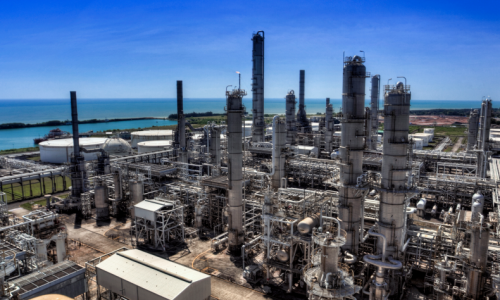Automotive spare part producer PT Selamat Sempurna Tbk (SMSM) has set IDR 150 billion (around US$ 10 million) Capital expenditure (Capex) in 2023 for maintenance such as line balancing, engine rejuvenation and adding mould-die. It also targets an increase in sales to 10%.
Established in 1976, the company is listed on the Indonesia Stock Exchange (IDX) in 1996. SMSM is a company focusing on automotive spare parts production and machinery, filters, radiators, oil coolers, condensers, brake pipes, fuel pipes, fuel tanks, exhaust systems, and press parts. One of its trademarked brands, Sakura filter has been distributed in more than 100 countries worldwide. SMSM, which parent company is PT Adrindo Intiperkasa, has subsidiaries as followed:
- Bradke Synergies Sdn Bhd and subsidiaries (SMSM has ownership of 100%);
- PT Hydraxle Perkasa (51%);
- PT Panata Jaya Mandiri (70%);
- PT Prapat Tunggal Cipta and subsidiaries (99.99%);
- PT Selamat Sempana Perkasa (99.99%);
- Sure Filter (Thailand) Co. Ltd. (44%).
SMSM focuses on domestic and export market
Despite the geopolitical obstacles and the worrying increase of global interest rates, Selamat Sempurna still predicted a good business by 2023, Chief Financial Officer (CFO) Ang Andri Pribadi said on January 8, 2023.
“The company will carry out mitigation by continuing to prioritize the precautionary principle in strengthening financial conditions and efforts to optimize assets. We will also be disciplined in managing costs, as well as increasing efficiency and effectiveness, so as to reduce existing costs,” he said .
SMSM will continue to cooperate with more domestic and export distributors and focus more on the development of the market. “The company is trying to meet the demand in a timely manner and create production efficiency to allow our product prices remain competitive,” said Pribadi.
He added that both domestic and foreign markets have the same potential for further development. But from the size, the potential of export is still bigger compared to the domestic market. “We are trying to add export destination countries. However, the penetration in the existing market is more focused on increasing the company’s market share,” Pribadi added.
The company hopes to continue sales growth by about 10%. It is also aiming to maintain the profit margin that it achieved in 2022.
Chip problems affect spare part industry
However, there are several risks in the national automotive spare parts industry. Among the risks include the ongoing semiconductor crisis that is faced by many global automotive industries.
According to Autoblog on July 18, 2021, the automotive industry and car spare parts had seen a decrease to 6.6% in June 2021 due to the rarity of computer chips. This problem also affected the manufacturing production by 0.1% in the same period. The decrease had been the third in the last 5 months during that year.
“The manufacturing sector continues to be hobbled by supply constraints,” said Stephen Stanley, chief economist at Amherst Pierpont Securities. “The highest profile example is the struggle of automakers to overcome chip shortages.”









